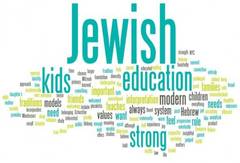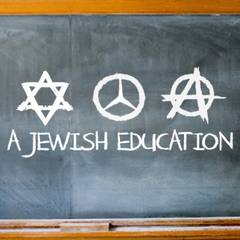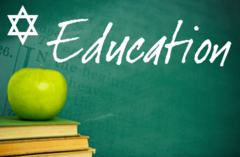Choosing Our Words: To Hurt or To Heal?
08/08/2016 09:33:27 PM
Aug8
| Author | |
| Date Added | |
| Automatically create summary | |
| Summary |
 Monday, August 8th, 2016
Monday, August 8th, 2016
First a little Jewish history. At sundown on Saturday August 13th the Jewish community around the world will mark the fast day called Tisha B’av. This commemoration remembers the destruction of both the first temple in Jerusalem, by the Babylonians nearly 2600 years ago, and that of the second Temple by the Romans 1946 years ago. It also commemorates the burning of Jerusalem and the end of the independent Jewish state both times. Tisha B’av marks the anniversary of the fall of Betar, ending the last Great Jewish revolt against Rome by Bar Kochba in the year 135CE, and of the expulsion of the Jews from Spain in 1492.
According to tradition, this day is marked with mournful dirges. Both evening and morning services includes the chanting of the tragic book called Lamentations. We also deny ourselves food and water.
The tradition attributes specific reasons for the destruction of the two temples. The first temple was destroyed, the rabbis tell us, because of idolatry, and the worship of false gods. The second Temple however, was destroyed for a very different reason. The Talmud teaches us, its fall was the result of baseless hatred of one Jew for another. In other words, we allowed our internal disputes to fester, and to destroy Jewish unity (sound familiar?). Where there used to be respectful disagreements in the search for truth and justice, our ancestors turned to pure hatred of one Jew towards another. The fractures created by intimidation, discord, and violence lead to communal weakness and helped the Romans to destroy our people and our holiest place.
So what do we learn? The results of such divisiveness teach a powerful lesson for us as Americans today. This primary election season and the first few weeks of the campaign for the presidency have exposed cracks in our social fabric. Important issues such as immigration control, growing the economy, gun control, and the environment have triggered intense, harsh, mean-spirited debate that have created distance and hurt between many fellow Americans, even within the same family. As a country we have forgotten what our founders believed: we are one nation under G_d. We can disagree on how to solve a particular national challenge, but we need to agree never to demonize; differ but not disrespect.
For sure, disagreements were part of the conversations and debates that shaped the ideals that formed our democracy. It is a healthy byproduct of a vibrant and free society. But hatred, and attacking the integrity of the opposition: these are simply not the way to express ourselves as proud Americans. Whether you’re a Jew or Gentile, conservative or liberal, someone born in this country or an immigrant, Tisha B’av reminds us all of the dangers of this kind of behavior, and its disastrous consequences.
In our prayers, we as Jewish worshipers, express the desire that the words of our mouths and the meditations of our hearts always be favorable before God. It is my prayer that we as Americans be able to converse and dialogue with one another with patience, grace and understanding. If we tear one another apart with our words and our tones, we will fail. But if we can learn to listen to a dissenting opinion and respond appropriately, our prayers will be answered and America will better able to meet the challenges of our day, together.
Amen
Rabbi Howard Cove
Beiteinu Synagogue
Sat, 29 November 2025
Upcoming Events
All Events
-
Tuesday ,
OctOctober 7 , 2025Lafayette Hill Classes- 7-9 yrs old
Tuesday, Oct 7th 4:30p to Wednesday, May 20th 5:30p
Rabbi Cove and Beiteinu will be returning to Lafayette Hill- virtually. We will be participating in an educational experience for Children 7-9 years old. Rabbi Cove will share his love of Judaism through interactive education and the celebration of various holidays. -
Tuesday ,
OctOctober 7 , 2025Lafayette Hill Classes- 10-12 yrs old
Tuesday, Oct 7th 6:00p to Wednesday, May 20th 7:00p
Rabbi Cove and Beiteinu will be returning to Lafayette Hill- virtually. We will be participating in an educational experience for Children 10-12 years old. Rabbi Cove will share his love of Judaism through interactive education and the celebration of various holidays. -
Wednesday ,
OctOctober 8 , 2025Blue Bell Classes
Wednesday, Oct 8th 4:00p to Wednesday, May 13th 5:00p
Rabbi Cove and Beiteinu will be coming to Blue Bell- virtually and in person. We will be participating in an educational experience for Children. Rabbi Cove will share his love of Judaism through interactive education and the celebration of various holidays. -
Wednesday ,
OctOctober 8 , 2025Dresher Classes
Wednesday, Oct 8th 5:30p to Wednesday, May 13th 6:30p
Rabbi Cove and Beiteinu will be back in Dresher virtually. We will be participating in an educational experience for Children. Rabbi Cove will share his love of Judaism through interactive education and the celebration of various holidays. -
Friday ,
OctOctober 24 , 2025Beiteinu Virtual Shabbat
Friday, Oct 24th 7:30p to Friday, Jun 26th 8:30p
Join Rabbi Cove for a moving and inspirational shabbat service in the safety of your home. Go to our website https://www.facebook.com/synagoguewithoutwalls/ and scroll to the videos. Click the "LIVE" video -
Friday ,
MarMarch 13 , 2026Beiteinu Shabbat Live in Person
Friday, Mar 13th 3:30p to 4:30p
Join Rabbi Cove and Beiteinu as he welcomes in the Shabbat. Enjoy lively discussions, prayer and friendship -
Friday ,
AprApril 24 , 2026Beiteinu Shabbat Live in Person
Friday, Apr 24th 7:30p to 9:00p
Join Rabbi Cove and Beiteinu as he welcomes in the Shabbat. Enjoy lively discussions, prayer and friendship -
Friday ,
MayMay 15 , 2026Beiteinu Shabbat Live in Person
Friday, May 15th 7:30p to 9:00p
Join Rabbi Cove and Beiteinu as he welcomes in the Shabbat. Enjoy lively discussions, prayer and friendship
Join Our Mailing List
Sat, 29 November 2025

